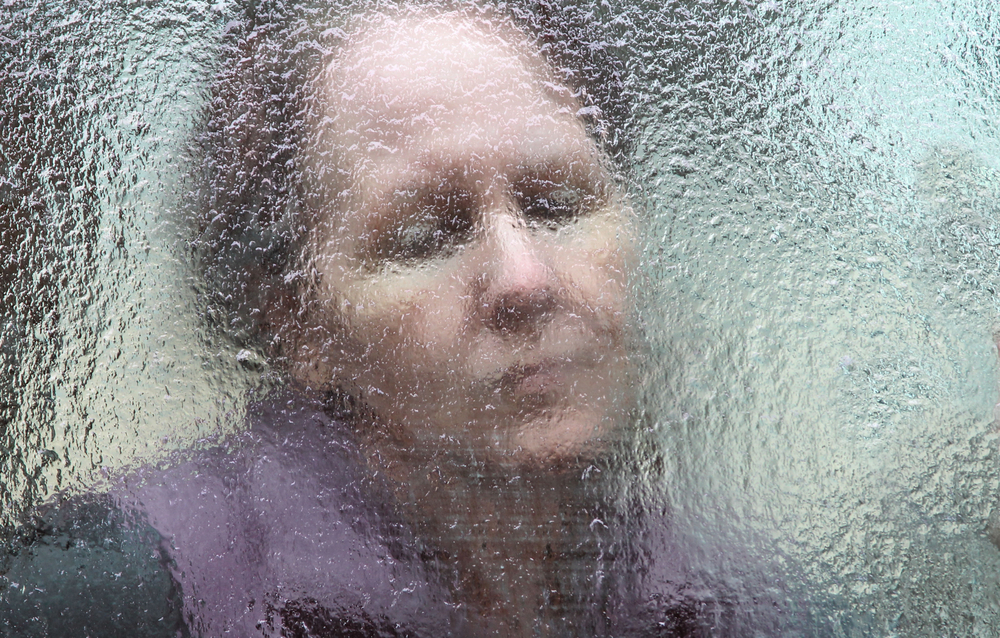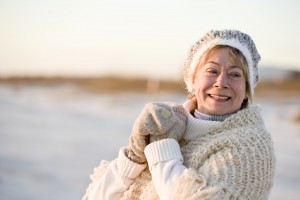- HOME
- SERVICES
- WHERE TO BEGIN
- LOCATIONS
- RESOURCES
- HEALTH PLAN SERVICES
- CAREERS
- EMPLOYEES

Beating the Winter Blues
As the holiday season signals the start of winter, and the amount of daylight continues to diminish, for many it can trigger feeling less energetic, along with an overall sense of being blue or depressed. This seasonal depression – or Seasonal Affective Disorder (SAD) – affects millions. It can have a particularly serious impact on the well-being of those who are recovering from surgery, are already facing the challenges of illness, and in the elderly. Home health care can be a key component in helping to manage SAD and to improve a patient’s overall well-being.
SAD can impact people throughout the year, but the shorter days and colder winter weather increases the number of people who feel mild symptoms, and also intensifies the symptoms for those who experience it year-round. Traditionally, estimates put the number of individuals in the US who experience SAD at about 4-6%, with an additional 10-20% who may experience mild SAD when winter weather hits.
For those recovering from surgery, struggling with conditions such as heart disease or facing the onset of memory loss, seasonal depression or SAD can make recovery or managing conditions more difficult. An in-depth look at SAD featured in The New York Times outlines possible complications from SAD, including the severity of increased illness and reduction of overall health.
Patients who experience depression – whether seasonal or ongoing – often feel tired and disinterested in activities they normally would enjoy. The cold weather can feel like a barrier to getting outside for fresh air, and interest in exercising at home can feel hard to muster. But inactivity can increase the severity of an illness and complicate recovery from surgery, and potentially lead to serious health complications.
Obesity has been linked to depression. This can impact diabetes and heart disease. The prognosis of developing heart disease increases in patients who experience depression. The more severe the depression, the more severe the cardiac symptoms can become.
In elderly patients, another complication of depression can be decreased mental functioning. For those with memory loss because of conditions such as Alzheimer’s, depression can have a significantly negative impact on overall well-being.

There are steps that your home health care aide can take to help combat the effects of Seasonal Affective Disorder. A key to maintaining good health is to exercise regularly. The Mayo Clinic reports that staying fit can have a big impact on improving moods, relieving stress and reducing anxiety.
While the winter presents challenges with cold and sometimes slippery conditions, home health care aides, when appropriate, can help the people in their care get outside for fresh air and exercise safely. The Mayo Clinic recommends getting outside for fresh air within two hours of getting up in the morning. Home care staff can also assist with range of motion exercises done in the home on days when weather conditions make it unsafe for seniors to walk outside or arrange for transportation to fun and engaging exercise activities. Additionally, exercising our social “muscles” can also help improve mood. The companionship of having a home health care aide can be a great boost, reducing a sense of isolation that can contribute to feelings of depression.
Rates of depression for the elderly who have lost their sense of independence rise dramatically, and estimated rates of depression are as high as 52% among those who live in nursing home environments. The rates for those who remain in their homes are significantly less. Whether this takes place through in-home visits or live-in care, home health care can provide a safe option for patients who wish to remain at home.
Curious how Premier Home Health Care can play a role in improving overall well-being? Our Starter Guide is a great place to begin to learn more about us and how we can help. To speak to a care specialist, please call us at 1-866-255-8620.
